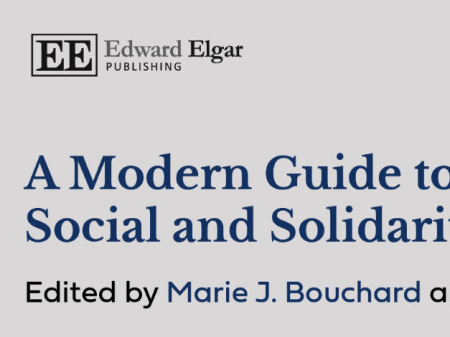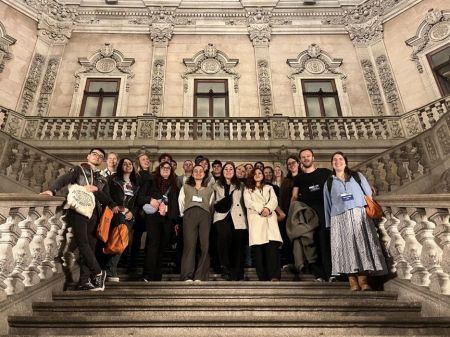We are pleased to share news of a new book relevant to…
NATCCO helps rebuild co-operatives affected by Typhoon Haiyan

With support from the global Co-operative Movement, the National Confederation of Cooperatives of the Philippines (NATCCO) has helped over 25 co-operatives from across the country to recover from typhoon Haiyan.
In the aftermath of the natural disaster, NATCCO’s main priority was to help co-operatives and their staff members rebuild their buildings and their homes.
NATCCO’s fundraising campaign was supported by co-operatives from across the country as well as by co-operatives from around the world, all showing the importance of principle six, “co-operation among co-operatives”.
Twenty-four Filipino co-operatives and six international co-operative organisations contributed to the fundraising campaign, while a dozen members of staff from NATCCO also participated in the Yolanda Run on 24 November. The three-kilometre run was part of an effort to raise funds for those affected by the natural disaster.
In December last year Won-Byung Choi, chairman of the National Agricultural Co-operative Federation of Korea and ICA board member, along with Dr Chan-Ho Choi, ICA Regional Director for the Asia-Pacific region, visited the premises of NATCCO in Queson. They handed over a cheque of USD $100,000 to NATCCO to support the rebuilding and recovery efforts.
Other international donors include the World Council of Credit Unions (USA), the International Co-operative Alliance - the Asia Pacific region, the National Agricultural Co-operative Federation of Korea, the IM Bistum Essen Bank of Germany, the Co-operative Business Centre of Myanmar, and Japan Consumers Co-operative.
The devastating typhoon, which stroke the Philippines on Friday, 8 November, affected over 16 million people, with 6,609 killed, 1,779 missing and 27, 665 injured. Many affected areas were left without access to electricity, water and communication. According to NRECA, around 30 electric co-operatives have been damaged by the storm and thousands of people were left without power. Over 3,000 credit union members were killed by the typhoon, while another 75,000 lost their homes, informed WOCCU. The typhoon had a great impact on the agricultural sector as well, with P17 billion (USD $380m) worth agricultural products destroyed.
The cost of damage to agriculture and infrastructures is estimated at P30.6 billion (USD $699.7 million). According to NATCCO’s Member Relations and Networking Group, more than 84 co-operatives with over 34,000 members were badly affected by the typhoon.




